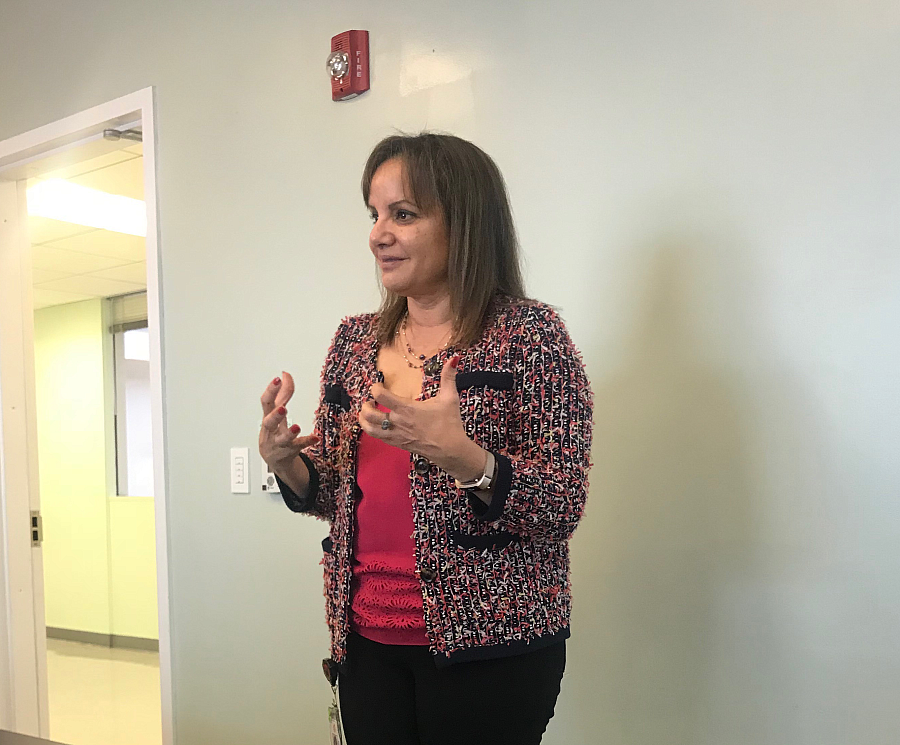LA schools seek better approach to address trauma

Pia Escudero, director of school mental health for LAUSD, speaks to fellows this week about trauma-informed care in schools.
Dealing with students’ childhood trauma may improve classroom behavior and attendance rates — at least that’s the idea at the Los Angeles Unified School District’s wellness centers.
The centers are located in or near schools, and designed to serve kids impacted by deportation threats, domestic abuse, housing instability and other traumas. The district is working with local nonprofits to expand the program.
Suzanne Markey is a mental health specialist with the district. She said schools often jump to discipline instead of counseling students through their issues.
“They do feel, ‘This kid is a problem — he has behaviors,’ but they’re not really looking at what’s underneath,” she said. “When you peel back the onion what you get is the trauma. If you can deal with that, you’ll see some changes.”
Fighting, lack of focus, classroom tantrums and other disruptive behaviors can often be tied to violence or neglect in the home. When the body is caught in a constant state of “fight or flight,” students can’t appropriately process their surroundings or communicate their feelings.
Keljawn, a 15-year-old student in the district, said he was having a hard time concentrating on school last fall after losing an infant sibling to a medical condition. His mother had delivered that baby's stillborn twin eight months earlier, and the family lost a child hit by a car a few years before that.
When teachers noticed he was getting into fights and acting out in class, they referred him to a counselor who met him several times a week on campus.
"When you're angry it's a mental shutdown," he said. "You just want to be by yourself."
But after near two years of therapy, he said he's back on track and ready to pursue his goal of going to college. He's thinking nursing, like his mom, or engineering, like his dad.
"Before, it was hard to take," he said. "I didn't want to tell nobody. But something just clicked ... You have it fight through it and get through it."
Pia Escudero, director of school mental health for the district, said aggressive students shouldn’t be suspended. They should be taken out of class and placed in therapy, where they can learn to overcome trust issues and practice calming themselves.
“It doesn’t mean you’re doomed for failure,” she said. “ It just means you need an opportunity to develop these protective behaviors … teaching hope is really important.”
There are roughly 260 school-based health clinics in California. About two-thirds offer mental health services. Advocacy groups across the state are pushing for legislation that would increase trauma training for teachers.
**

